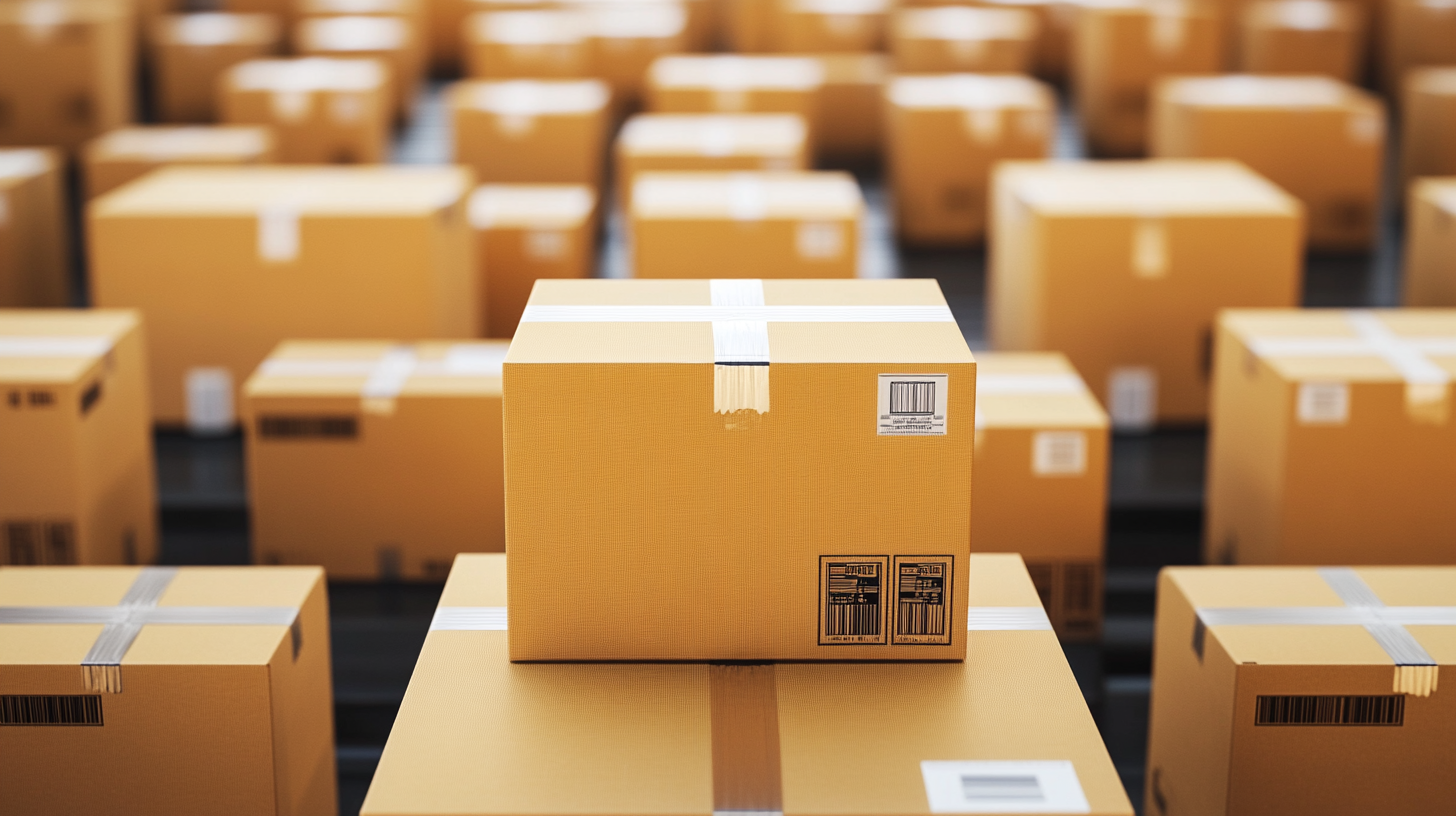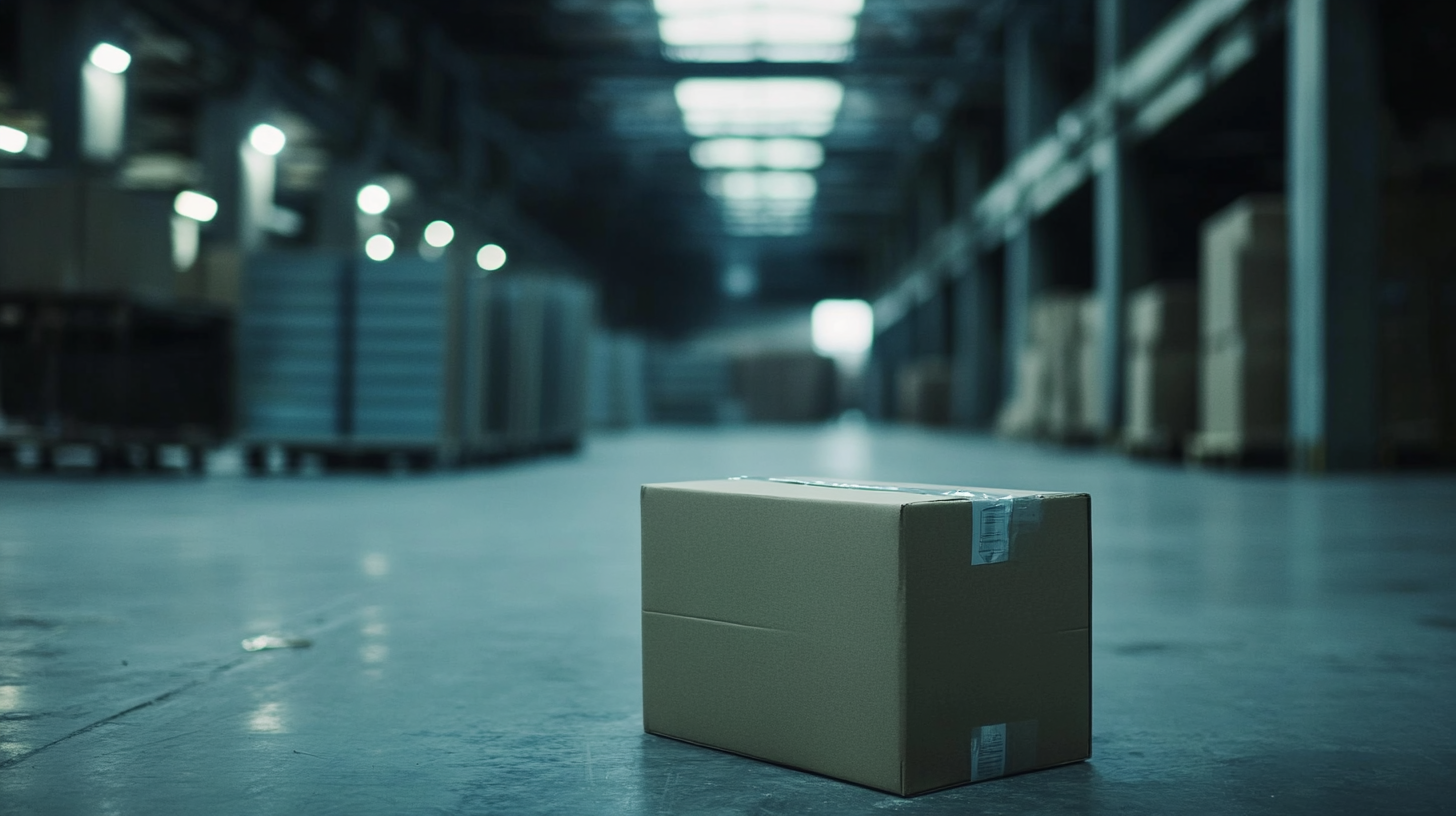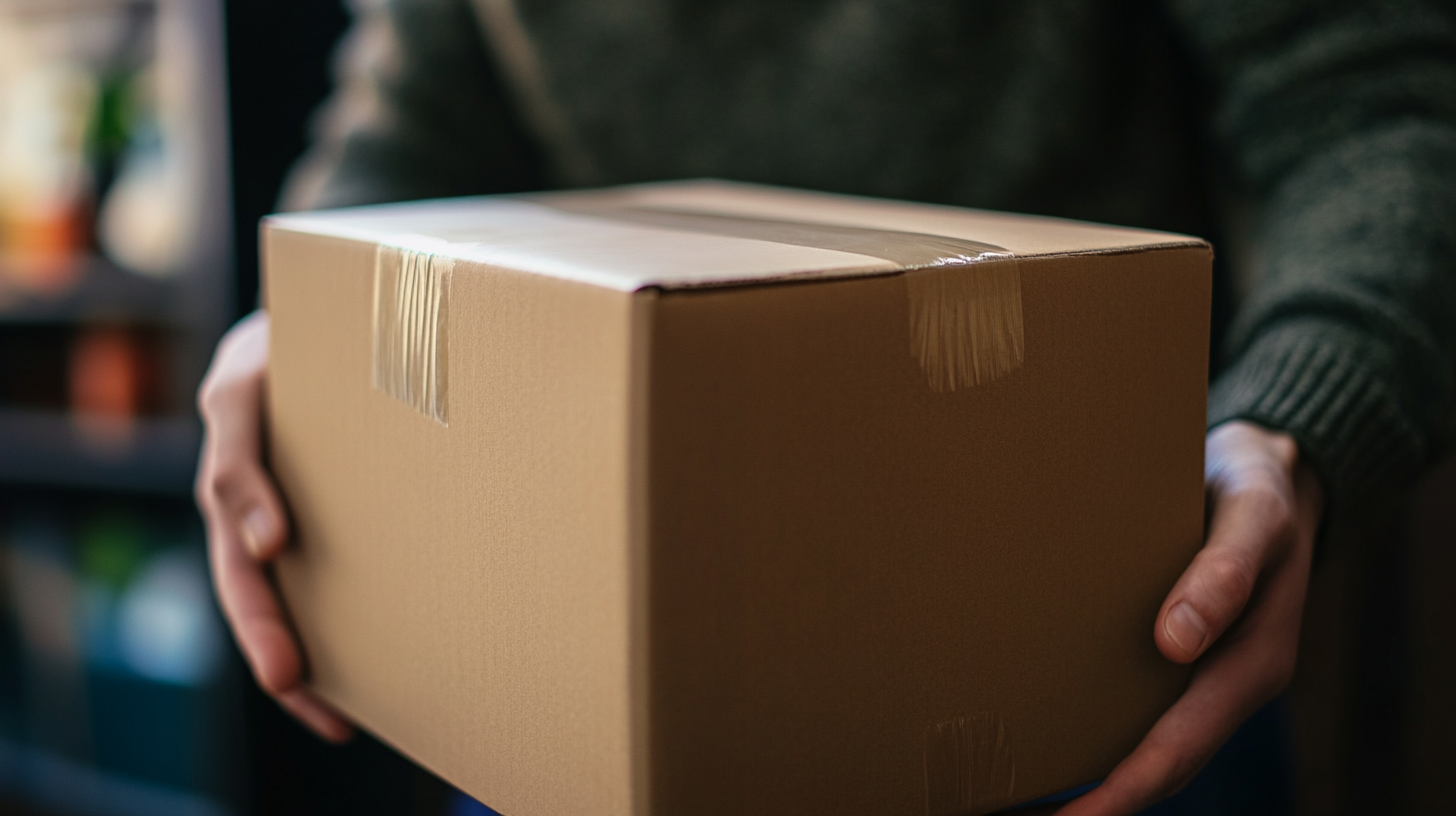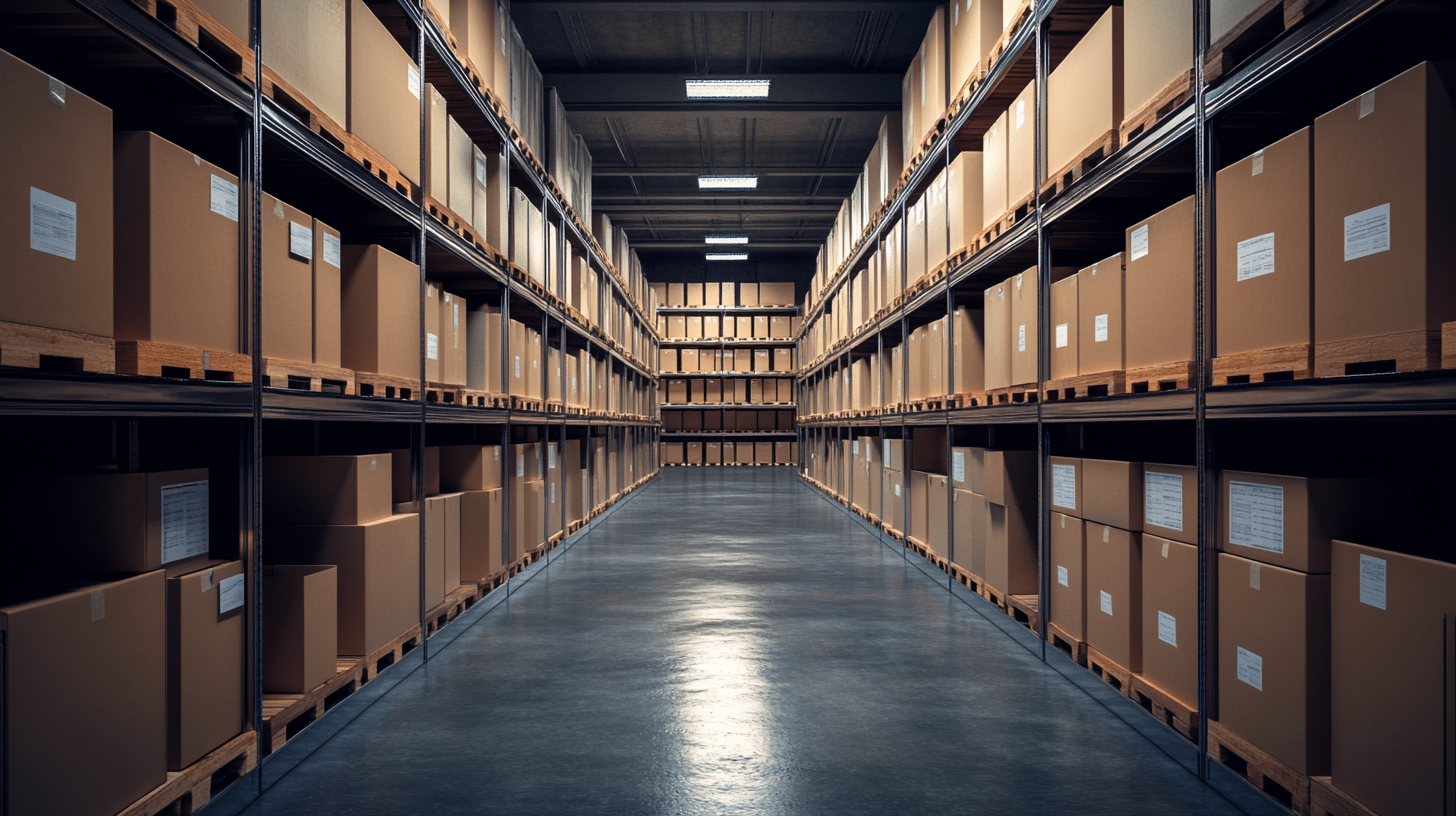5 Key Benefits of Using Automatic Box Taping Machines for Your Business Growth
In today's fast-paced commercial landscape, efficiency and reliability are paramount for businesses looking to maintain a competitive edge. One crucial aspect of operational efficiency lies in the packaging process, where the use of an Automatic Box Taping Machine has emerged as a game-changer. According to a report by the Packaging Machinery Manufacturers Institute, the global packaging machinery market is projected to reach $50 billion by 2025, with automated solutions playing a significant role in this growth. As companies strive to streamline their operations and reduce labor costs, investing in automatic solutions like box taping machines is increasingly seen as a strategic move.
Moreover, the demand for speed and consistency in packaging is further evidenced by a study from Fortune Business Insights, which indicates that the automation market in packaging is expected to grow at a compound annual growth rate (CAGR) of 5.2% through the next five years. This trend highlights the vital role that Automatic Box Taping Machines play in enhancing productivity and ensuring quality control. By integrating such automation into their packaging processes, businesses not only optimize their workflows but also position themselves for sustainable growth in an ever-evolving market.

Enhancing Efficiency: How Automatic Box Taping Machines Speed Up Operations
The use of automatic box taping machines is transforming operations across various industries, enhancing efficiency and streamlining processes. These machines significantly reduce the time it takes to seal packages, which is crucial in today’s fast-paced logistics environment. By automating the taping process, businesses can minimize labor costs, improve consistency in packaging, and ultimately accelerate their production lines. This efficiency gains a competitive edge, allowing companies to respond quickly to market demands and customer expectations. Recent advancements in packaging technology, such as those showcased at industry events, underscore the importance of automation in enhancing operational speed. As companies increasingly look for ways to cut costs and improve throughput, the integration of automatic box taping machines plays a vital role. For instance, at recent trade shows, manufacturers have introduced innovative solutions that not only speed up taping but also ensure reliability and quality in package sealing, showcasing how automation can lead to improved bottom lines. Furthermore, the growing packaging automation market highlights the shift towards smarter solutions in fulfillment operations. As businesses strive to scale their logistics to meet rising demand, the adoption of automatic box taping machines becomes essential. These machines not only support higher volume output but also contribute to a safer working environment by reducing manual handling, allowing employees to focus on more critical tasks. As the industry evolves, investing in such technology is becoming a key strategy for businesses aiming for growth and enhanced operational efficiency.

Reducing Labor Costs: The Financial Benefits of Automation in Taping
Automating processes in packaging, like using automatic box taping machines, can significantly reduce labor costs and improve financial performance for businesses. In the current market landscape, companies are continuously seeking ways to improve their operational efficiency, and automation plays a crucial role in this transformation. According to industry reports, businesses that implement automation within their packaging processes can reduce labor costs by as much as 30%. This reduction directly impacts the bottom line, allowing for reinvestment into other areas of the business or improving profitability.
Furthermore, leveraging advanced automation technologies, such as robotic process automation (RPA), enables organizations to streamline various operations, including packaging. Research shows that employees typically spend up to 40% of their time on repetitive, clerical tasks. By automating these tasks, companies not only save on labor expenses but also enhance productivity. The cost associated with manual labor in tape application can lead to inefficiencies and potential errors, which are mitigated through automation, ensuring higher precision and consistency.
In addition to immediate cost savings, the implementation of automatic tape machines allows companies to scale their operations effectively. The efficiency gained through this automation can lead to improved production throughput, crucial in today’s competitive environment. Studies indicate that businesses embracing this technology could see an increase in output by up to 20%, allowing them to meet rising demand without a proportional increase in labor costs. This combination of reduced expenses and increased efficiency positions companies for substantial growth.

Improved Packaging Quality: Ensuring Consistency and Reliability with Automation
Automation in packaging has revolutionized the way businesses operate, and one of the standout innovations is the automatic box taping machine. These machines not only streamline the packaging process but also significantly enhance packaging quality, ensuring consistency and reliability throughout. This focus on quality is essential for businesses aiming to build a strong reputation and foster customer loyalty.
Consistent packaging is crucial for brand identity. With automatic box taping machines, companies can achieve uniform tape application, which eliminates the variances often found in manual taping. This consistency not only improves the overall aesthetic of the packaging but also contributes to brand recognition. When consumers receive products that are neatly and uniformly packaged, it enhances their perception of the brand, asserting a higher standard of quality.
Moreover, the reliability of these machines allows businesses to maintain productivity without compromising quality. Manual taping is labor-intensive and susceptible to human error, which can lead to packaging flaws and product damage. Automatic box taping machines, on the other hand, operate with precision and speed, reducing the risk of packaging defects. This reliability builds trust with customers, as they can be assured that their products will arrive in pristine condition, further enhancing the business’s reputation for quality and dependability.

Boosting Safety: Minimizing Workplace Injuries with Automated Taping Solutions
The use of automatic box taping machines is not just a matter of efficiency; it is also a critical step towards enhancing workplace safety. According to the National Safety Council, workplace injuries cost employers over $170 billion annually in direct and indirect costs. One of the primary causes of injuries in manufacturing and packaging environments is repetitive motion and manual handling. By switching to automated taping solutions, businesses can significantly reduce the risk associated with these tasks.
Automated taping systems minimize the physical strain on workers, which is crucial in preventing injuries such as carpal tunnel syndrome and back strains. A report from the Bureau of Labor Statistics reveals that musculoskeletal disorders account for nearly 30% of all worker compensation claims. By integrating automatic taping machines, companies not only streamline their packaging processes but also create a healthier workplace, thereby reducing the frequency of these debilitating injuries.
Moreover, with safety regulations becoming increasingly stringent, automating packaging processes like taping can help businesses maintain compliance with occupational safety standards. The Occupational Safety and Health Administration (OSHA) emphasizes that enhancing worker safety is essential for sustaining productivity and profitability. By adopting automated solutions, businesses can ensure that they are not only improving efficiency but also safeguarding their most valuable asset: their employees.
Supporting Business Scalability: Meeting Growing Demands with Ease Through Automation
As businesses grapple with increasing demands, automating processes becomes essential for scalability. One area that can significantly benefit from automation is packaging. According to a report by MarketsandMarkets, the global box taping machine market is projected to reach $1.2 billion by 2026, growing at a CAGR of 4.9%. This growth underscores the rising demand for efficient and reliable packaging solutions in a rapidly evolving market.
Automatic box taping machines offer a compelling solution to meet growing business needs. By streamlining the packaging process, these machines not only reduce the time spent on manual labor but also ensure consistency and accuracy in sealing. A study by Smithers Pira indicates that automation in packaging can lead to a 30-50% reduction in labor costs, allowing businesses to allocate resources more effectively and focus on core growth strategies.
Furthermore, as businesses expand their product lines and distribution channels, the versatility of automatic box taping machines becomes a valuable asset. They can accommodate various box sizes and types, enabling companies to adapt quickly to changing consumer preferences and market conditions. In an era where flexibility and efficiency are paramount, investing in automation can drive significant improvements in the bottom line, making it a strategic choice for businesses aiming for sustainable growth.

